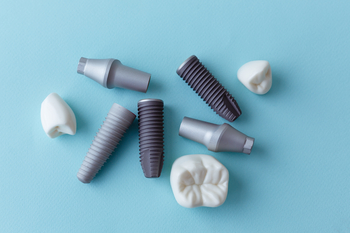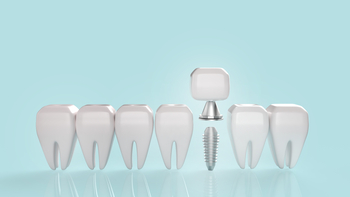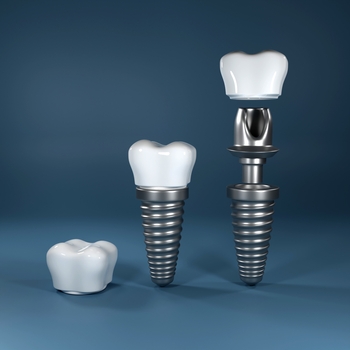Dental implants have become a popular solution in the quest for a perfect smile and functional teeth, prompting some to explore options beyond their home country. As dental tourism gains popularity, a destination that has emerged as a hub for those seeking affordable dental treatments is Bali. Dental implant treatments there, however, hide several considerations beneath the surface of this tropical paradise.
This comprehensive guide sheds light on the potential disadvantages of opting for Bali as a destination for dental implant procedures. While the allure of tropical landscapes and cost savings may be tempting, it is crucial to consider the risks and drawbacks of undergoing such a crucial and invasive procedure in a foreign land.
Cost Comparison: Bali Vs. Australia (Disadvantages Of Dental Implants In Bali)

When contemplating dental implants, cost significantly influences the decision-making process. Bali may offer lower upfront costs for dental implant procedures, but a thorough comparison with Australian rates is crucial. Understanding the cost disparity between Bali and Australia is fundamental for making an informed decision that considers both financial aspects and the quality of dental care.
Undergoing a dental implant procedure is a significant decision, as it involves a surgical and invasive process with inherent risks. Bali, while offering scenic beauty, may not provide the same level of safety, familiarity, and adherence to high standards as in their home country. Recognising that any invasive procedure carries potential complications is essential, and being aware of these risks is crucial for informed decision-making.
Additional Costs And Hidden Expenses
While Bali’s initial costs may appear attractive, it’s vital to consider potential hidden expenses arising during and after the dental implant process. Travel, accommodation, and unforeseen complications may contribute to the overall expense. A transparent evaluation of all potential costs ensures a more accurate comparison between Bali and Australia and aids decision-making.
Language Barrier Challenges
Effective communication with your treating dentist is paramount for the success of any dental implant procedure. Bali’s language barrier can present challenges, potentially affecting the clarity of pre- and post-surgery instructions. Misunderstandings with foreign dental practitioners due to linguistic differences may impact the overall outcome of the treatment, emphasising the importance of clear communication in complex dental procedures.
Safety Standards And Qualified Opinions
Dental treatments abroad may not always adhere to the same rigorous safety standards as those in Australia. Seeking the opinion of a qualified dentist can act as a safeguard, ensuring that the proposed treatment plan aligns with the highest oral healthcare standards. This step becomes particularly crucial when considering complex procedures like dental implants.
Why Australia Is A Superior Destination For Your Chosen Dental Treatment
Choosing the right destination for dental implant procedures is a crucial decision that significantly impacts the success and safety of the overall experience. In this section, we explore why Australia emerges as a superior destination for dental implants, focusing on two key aspects: the rigorous training of Australian dentists and the country’s unwavering commitment to safety standards in medical treatments, particularly dental procedures.
Understanding these factors is essential for individuals contemplating dental implant surgery, ensuring they make an informed decision prioritising quality care and their well-being. Let’s delve into the specifics that make Australia a standout choice for those seeking complex restorative treatments.

Australian Dentists And Rigorous Training
Opting for dental implants in Australia ensures being treated by dentists who undergo rigorous training. Australian dental professionals have the latest technology and expertise, ensuring a comprehensive and well-executed dental implant procedure. Trusting experienced professionals contributes significantly to the success and safety of the dental implant process.
Compliance With Safety Standards
Australia maintains stringent safety standards for medical treatments, and dental procedures are no exception. Choosing Australia for dental implants ensures the procedure meets the highest safety and quality standards. Prioritising safety is paramount when considering invasive procedures like dental implants, making Australia a superior destination for these complex restorative treatments.
Affording Dental Implant Cost In Australia
Embarking on the journey towards dental implants in Australia involves considerations beyond the immediate financial aspect. In this section, we will delve into strategies for affording dental implants, recognising that while the initial costs may seem higher, various options exist to make this transformative investment more accessible.
Exploring Dental Insurance And Health Savings Accounts (HSAs) / Flexible Spending Accounts (FSAs)
While the cost of dental implants in Australia may initially seem higher, exploring dental insurance and utilising Health Savings Accounts (HSAs) or Flexible Spending Accounts (FSAs) can be instrumental in making this crucial investment more affordable. Dental insurance can cover some of the costs, reducing the financial burden. HSAs and FSAs allow individuals to use pre-tax dollars to cover eligible medical expenses, including dental implants. Exploring these insurance and savings options ensures that the financial aspect does not hinder the pursuit of optimal oral health.
Payment Options And Instalment Programmes
Understanding that the upfront costs may be a concern, various payment options and instalment programmes, such as the National Dental Plan (NDP), offer interest-free solutions. NDP allows individuals to spread the cost of dental implants over time, making the financial commitment more feasible without incurring additional financial burdens. Exploring these options ensures that the transformative benefits of dental implants remain within reach, accommodating diverse financial situations.
Importance Of Oral Health Investment
Investing in dental implants is a financial commitment and investment in long-term oral health and well-being. Understanding the significance of this investment emphasises the value it adds to one’s life. While upfront costs may seem substantial, the long-term benefits, both functionally and aesthetically, contribute to a higher quality of life.
What To Expect During Dental Implant Surgery

Embarking on the journey of dental implant surgery in Australia involves a meticulous and personalised process. This section will guide you through what to expect during this transformative experience, highlighting the crucial steps contributing to a successful and stress-free dental implant procedure.
Comprehensive Pre-Surgery Consultation
Before you undergo dental implants, a comprehensive consultation session with your treating dentist is crucial to inspect your natural teeth as well as missing or damaged teeth. This stage involves discussions about the specific procedure, potential bone grafting or sinus lifting, and a range of options tailored to your unique case. This thorough pre-surgery consultation sets the foundation for a successful and personalised dental implant experience.
Surgery Steps
The actual dental implant surgery consists of several key steps, each playing a pivotal role in the overall success of the procedure:
- Anaesthesia Administration: Before the surgery begins, anaesthesia is administered to ensure a comfortable experience for the patient.
- Incision: The treating dentist makes a small incision in the gum to expose the jawbone, creating a space for the implant.
- Drilling: A series of drills are used to create a precise opening in the jawbone where the dental implant will be placed.
- Implant Placement: The dental implant, typically a titanium screw, is carefully inserted into the prepared space in the jawbone. This implant serves as the foundation for the artificial tooth.
- Closure: After securely placing the implant, the incision is closed with sutures.
Understanding these surgical steps provides insight into the process, ensuring that patients are well-informed and prepared for the transformative journey of dental implant surgery.
Latest Technology And Comfortable Environment
Australian dental clinics leverage the latest technology to ensure the success and comfort of dental implant surgery. From advanced diagnostic tools to a comfortable waiting room, cutting-edge technology provides a seamless and comfortable experience for patients undergoing dental implant surgery.
Potential Complications Of Cheap Dental Implants
Embarking on the journey of dental implants, particularly when considering cost-effective options, necessitates a comprehensive understanding of potential complications. This section will highlight the risks associated with opting for cheap dental implants, emphasising the long-term impact on oral health and the potential consequences of prioritising affordability over quality.
Post-Surgery Complications
Opting for cheap dental implants in Bali or elsewhere may lead to post-surgery complications. Substandard materials and procedures increase the risk of infection, implant failure, and discomfort. Understanding the potential consequences of choosing affordability over quality is crucial for making an informed decision about oral health. The long-term impact of compromised dental work can result in additional treatments and expenses to address complications that arise from cheap dental implants.
Long-Term Impact On Oral Health
While the initial appeal of cost savings with cheap dental implants may be enticing, the long-term impact on oral health should not be underestimated. Compromising on the quality of dental work can lead to unforeseen complications, potentially necessitating additional treatments and expenses. Prioritising the longevity and effectiveness of dental implants over short-term affordability is essential for maintaining optimal oral health.
How To Take Care Of Your Dental Implant
Ensuring the longevity and success of dental implants extends beyond the surgical procedure. In this section, we will guide you through the essential steps for maintaining optimal oral health and the stability of your dental implants. From a commitment to meticulous oral hygiene to the importance of follow-up appointments and monitoring, this segment provides comprehensive insights into the care and attention required to protect your investment in dental implants.

Commitment To Oral Hygiene
Proper care and maintenance are paramount for the longevity of dental implants. Adopting a meticulous oral hygiene routine, including regular brushing, flossing, and professional check-ups, ensures the health and stability of artificial teeth. Patients must be committed to maintaining a high standard of oral hygiene to protect their investment in dental implants.
Follow-Up Appointments And Monitoring
Scheduled follow-up appointments with your treating dentist are crucial for monitoring the healing process and addressing any concerns promptly. This proactive approach contributes to the overall success of your dental implant. Regular check-ups and monitoring enable early detection of potential issues, ensuring timely intervention and preserving the integrity of the implanted teeth.
Frequently Asked Questions
Is dental tourism a safe option for complex procedures?
Dental tourism, while offering potential cost savings, can pose risks, especially for complex procedures like dental implants. Factors such as differences in safety standards, language barriers, and potential complications may outweigh the initial financial benefits. It is crucial to consider these considerations when contemplating dental tourism for complex restorative procedures.
How can I afford dental implants in Australia?
Affording dental implants in Australia involves exploring various options. Dental insurance, payment plans, and financing can make the initial cost more manageable. Understanding these resources ensures that the transformative benefits of dental implants remain accessible without compromising financial stability.
What are the common complications after dental implant surgery?
Complications after dental implant surgery may include infection, dental implant failure, or discomfort. However, these risks can be minimised with proper care, regular follow-ups, and adherence to post-surgery guidelines. Awareness of potential complications and proactive management contribute to dental implants’ success and longevity.
Replacing Your Missing Teeth With A Local Dentist
Choosing the right destination for dental implant procedures is a crucial decision that involves weighing the advantages and disadvantages. While Bali may offer a tempting proposition, Australia is a superior choice, ensuring quality dental care and adherence to the highest safety standards. Making an informed decision about dental implants involves considering the immediate costs and the long-term impact on oral health and overall well-being.
Contact Infinity Dental Care, Winston Hills, NSW, at (02) 9159 6237 to obtain your high-grade dental implant treatment at a reputable dental clinic.
Note: Any surgical or invasive procedure carries risks. Before proceeding, you should seek a second opinion from an appropriately qualified health practitioner.
Sources
“ADA Policies – Elective Overseas Dental Treatment.” Australian Dental Association, ada.org.au/policy-statement-2-2-6-elective-overseas-dental-treatment.
Adams, Lina. “Beware of Language Barriers, Dental Tourists Warned – Dentistry.” Dentistry.co.uk, 30 Aug. 2023, dentistry.co.uk/2023/08/24/beware-of-language-barriers-dental-tourists-warned.
Bsdh, Laurie Magallan Rdh. “Dental Tourism: Making Patients Aware That the “Bargain” Could Be a Big Mistake.” Today’s RDH, 16 June 2023, www.todaysrdh.com/dental-tourism-making-patients-aware-that-the-bargain-could-be-a-big-mistake.
Can I Use My HSA or FSA to Pay for Dental Services? blog.healthequity.com/hsa-and-fsa-for-dental-care.
Colgate. “Bone Graft for Dental Implants: Understanding the Possibility.” Colgate®, 18 Nov. 2020, www.colgate.com/en-gb/oral-health/implants/bone-graft-for-dental-implants-understanding-the-possibility-0213.
Dental Implant Surgery – Mayo Clinic. 29 Jan. 2019, www.mayoclinic.org/tests-procedures/dental-implant-surgery/about/pac-20384622.
Dental Tribune International. “DT News – International – Risks of Dental Tourism …” Dental Tribune International, 13 July 2017, www.dental-tribune.com/news/risks-of-dental-tourism-highlighted-by-ada.
Elias, Carlos Nelson. “Factors Affecting the Success of Dental Implants.” InTech eBooks, 2011, https://doi.org/10.5772/18746.
“How to Clean Your Dental Implants.” Oral-B, oralb.com/en-us/oral-health/life-stages-adults/how-to-clean-your-dental-implants.
Lamb, Sandra. “When Dental Implants Go Wrong.” AARP, 13 Nov. 2020, www.aarp.org/health/conditions-treatments/info-2020/dental-implants-danger.html.
Robinson, Kara Mayer. “Risks Associated With Dental Implants.” WebMD, 2 May 2022, www.webmd.com/oral-health/risks-dental-implants.
Staff, USA Today. “Home.” USA TODAY, 9 Feb. 2024, www.usatoday.com/money/blueprint/health-insurance/dental/how-to-get-dental-implants-covered-by-insurance.
Tanner, A. C. R., et al. “Dental Implant Infections.” Clinical Infectious Diseases, vol. 25, no. s2, Sept. 1997, pp. S213–17. https://doi.org/10.1086/516243.

